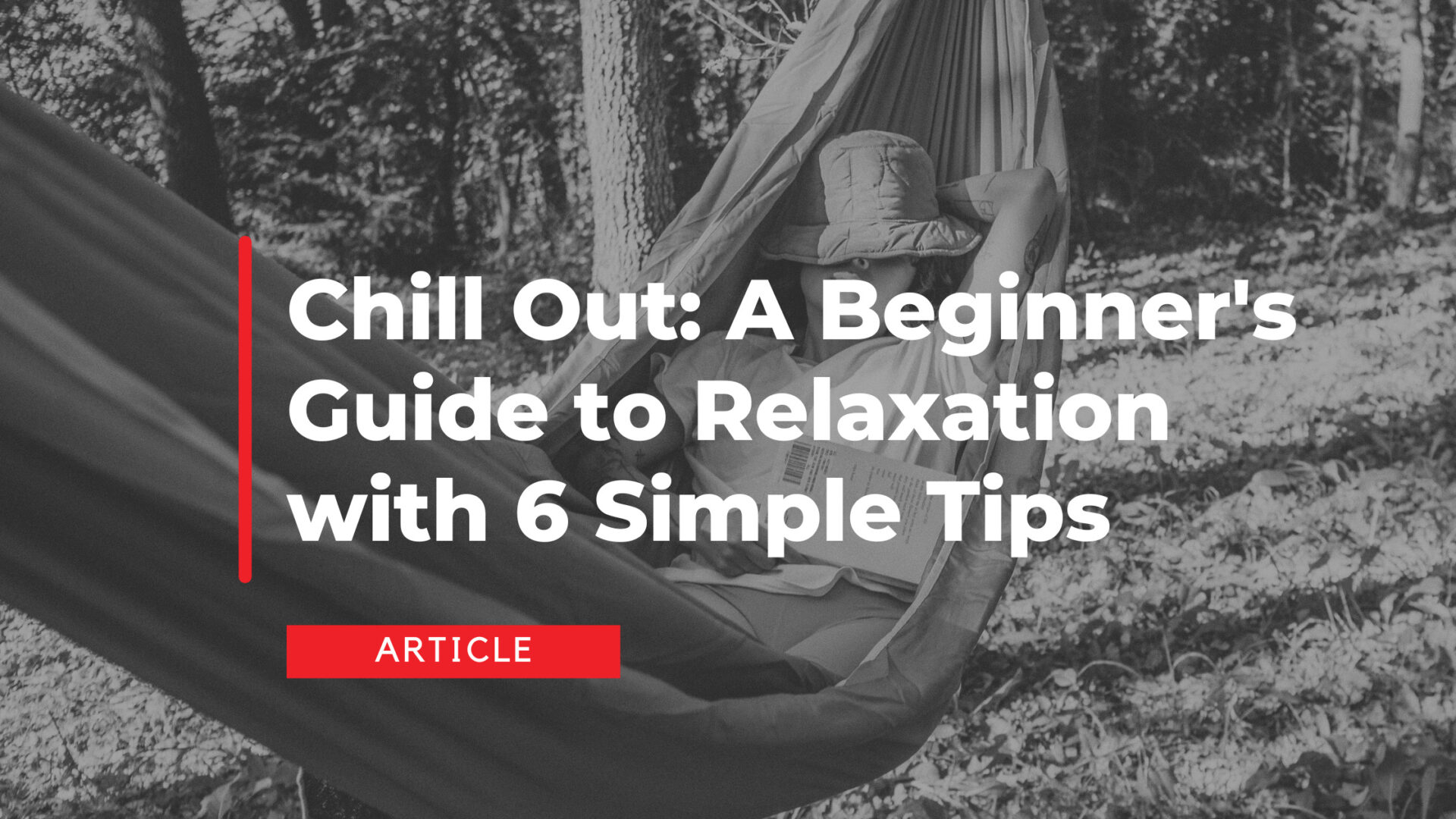
Chill Out: A Beginner’s Guide to Relaxation with 6 Simple Tips
You’ve probably heard time and time again about the importance of rest and relaxation, but have you ever truly considered how to relax effectively?
It might seem like an unusual question, given that the concept of rest appears straightforward. The reality is numerous obstacles can obstruct our path to restful and rejuvenating downtime, and many of us struggle with this. Let’s look 6 simple tips to help you take the rest you need and live a more energised life.
1. Identify Your True Sources of Relaxation
Many people mistake non-relaxing activities for relaxation. For instance, scrolling through social media might not be as relaxing as you think. Instead of forcing yourself into traditional relaxation activities like meditation or napping, which may not suit you, consider that relaxation isn’t one-size-fits-all.
To discover what truly relaxes you, rethink your approach. Relaxation isn’t just one specific activity; it’s the result of any activity. Try different hobbies, physical activities, socialising, and self-care practices. Pay attention to how you feel afterwards. If you feel grounded and at ease, that’s your relaxation activity. If not, don’t be afraid to experiment with new, even small activities, like a brief moment of deep breathing, to find what works best for you.
2. Schedule Your Rest Time Generously
When we leave relaxation to chance, we often end up not getting enough of it. Schedule it into your day to ensure you rest adequately, even if it’s just small pockets of time. The key is to be honest about your desires and needs. If you crave a full day of couch time for your favourite show, schedule it upfront instead of trying to limit yourself to a shorter break. Be kind to yourself and prioritise your well-being.
3. Be Purposeful with Your Relaxation
Effective relaxation requires intentionality. Instead of half-heartedly unwinding for extended periods, focus on shorter, purposeful relaxation sessions. Avoid distractions like emails and social media, and don’t turn your hobbies into work. Define what relaxation means for you and set clear goals for each session. Ask yourself what you hope to achieve: Is it a distraction from work stress, refreshment for facing life’s challenges, anxiety relief, or comfort-seeking? Tailor your relaxation activities accordingly, and establish boundaries like limiting phone use or selecting the right time and place for maximum effectiveness.
4. Integrate Regular Moments of Relaxation
Rather than adopting an all-or-nothing approach to relaxation, sprinkling moments of relaxation throughout your week is more effective. Avoid the trap of pushing yourself too hard during the week and saving relaxation solely for the weekends or neglecting it altogether due to time constraints. This approach can lead to binge relaxation sessions, often accompanied by guilt and other emotions that hinder genuine relaxation.
5. Reject the “Earn Your Rest” Idea
Many of us fall into the trap of linking relaxation to completing tasks. We convince ourselves that we can only relax once we’ve finished everything on our to-do list. While this may seem logical, the truth is that our to-do lists are often never-ending, and this mindset can lead to overwork and insufficient rest.
Furthermore, it can taint the rare moments when we do allow ourselves to relax with feelings of guilt and distraction. Instead of framing rest as a reward to be earned, remember that rest is a necessity.
“It’s not about deserving; you need rest. Our brains require downtime biologically and physiologically.”
– Jor-El Caraballo (Mental Health Specialist)
6. Establish a Ritual to Set the Mood
Completing work or studies from home can blur the boundary between work and personal life. Without traditional cues like commuting or leaving the office, creating your transition ritual is important.
Choose an activity that helps you mentally shift from work to relaxation mode. Whether it’s taking a walk, meditating, doing a quick chore, making a to-do list for the next day, or playing a specific song as a signal to tell yourself, “Work is done; it’s time to unwind.”
Remember to maintain the intentionality we discussed earlier by setting clear boundaries. Avoid checking emails or getting caught up in work-related tasks. This ritual will help you strike a healthy work-life balance while working or studying from home.
In conclusion, achieving effective relaxation is a challenge despite the widely acknowledged importance of rest. However, the six simple tips we’ve explored can pave the way for a more restful and rejuvenating experience. By reframing your approach, embracing intentionality, and implementing practical strategies, you can prioritise the rest you need for improved well-being and mental health. So, don’t underestimate the value of mastering the art of relaxation—it’s a crucial skill for a happier, healthier life.



